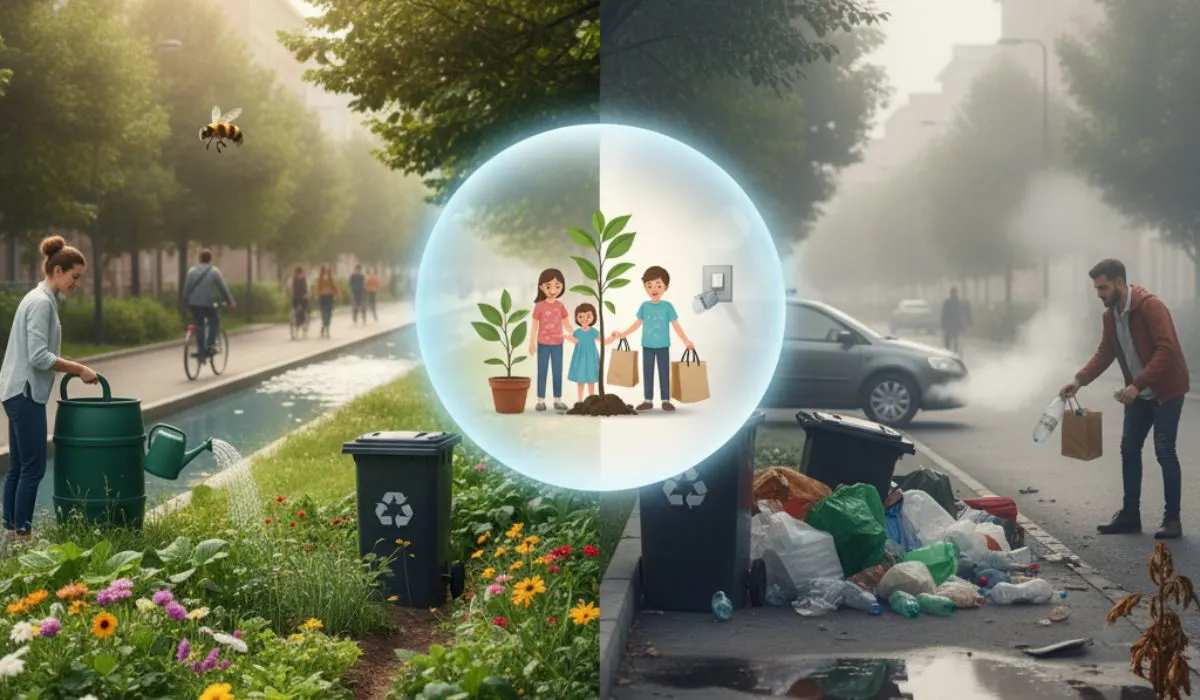In today’s fast-paced world, natural issues such as climate change, deforestation, and contamination have ended up more pressing than ever. Understanding the importance of environmental awareness in daily life is vital not onlyfor the well-being of our planet but also for the quality of life we appreciate as people. Natural mindfulness alludes to the information and understanding of how human exercises affect the environment and the steps we can take to moderate these impacts. By consolidating eco-friendly propensities into our day-by-day schedules, we contribute to a feasible future for ourselves and eras to come.
Understanding Natural Awareness
Environmental mindfulness is the establishment of dependable living. It includes recognizing how regular actions—from vitality utilization to squander management—affect common assets. Individuals who are naturally cognizant effectively look to decrease their carbon footprint, moderate water, reuse, and advance biodiversity. This mindfulness regularly leads to a way of life that prioritizes maintainability and minimizes hurt to the environment.
For example, little activities like turning off unused electrical apparatuses, maintaining a strategic distance from single-use plastics, or choosing open transportation over private vehicles can altogether diminish contamination levels. So also, supporting eco-friendly items and sustainable businesses makes a difference and makes an advertisement that values natural responsibility.
The Part of Natural Mindfulness in Day-by-Day Life
Integrating natural mindfulness into everyday life has numerous benefits. These benefits run from individual well-being to worldwide biological impact:
1. Advances More Advantageous Living
An eco-conscious way of life regularly empowers more advantageous choices. For illustration, devouring natural nourishments, decreasing exposure to chemical-laden items, and investing time in green spaces all contribute to progressing physical and mental well-being. When we prioritize the environment, we are by implication prioritizing our own well-being.
2. Decreases Contamination and Waste
Environmental mindfulness leads to way better squander administration and contamination lessening. Reusing, composting, and diminishing single-use things prevent destructive materials from finishing up in landfills or seas. Minimizing emanations by utilizing energy-efficient apparatuses or strolling instead of driving decreases pollution and mitigates climate change.
3. Moderates Characteristic Resources
Resources such as water, timberlands, and fossil fuels are limited. Being naturally mindful empowers mindful utilization. Basic activities like settling spilling taps, lessening water utilization, planting trees, or utilizing renewable vitality sources offer assistance to preserve these valuable assets for future generations.
4. Empowers Feasible Practices
Sustainability is approximately the assembly of the needs of the display without compromising the capacity of future eras to meet theirs. Ecologically mindful people receive economical honors like utilizing reusable sacks, choosing eco-friendly transportation, and supporting renewable vitality ventures. These activities collectively contribute to a greener planet.
5. Improves Community Engagement
Environmental mindfulness cultivates a sense of duty toward society. Community-driven activities such as tree planting drives, neighborhood cleanups, and mindfulness campaigns empower collective activity. Such endeavors not only progress nearby situations but also reinforce community bonds.
Read More:- Absolute Humidity: Definition and Significance
How to Join Natural Mindfulness in Day-by-Day Life
Adopting eco-friendly propensities may appear overwhelming to begin with, but little, reliable steps can have a critical effect over time. Here are commonsense ways to coordinate natural awareness into your day-by-day routine:
1. Decrease, Reuse, Recycle
Following the three Rs is one of the least complex but most successful ways to ensure the environment. Decrease squander by buying, as it were, what you require; reuse things instead of disposing of them; and reuse materials such as paper, plastic, and glass to minimize landfill accumulation.
2. Moderate Energy
Energy preservation diminishes greenhouse gas emanations. Basic steps like exchanging driven bulbs, unplugging electronic gadgets when not in use, and utilizing energy-efficient machines can spare both cash and normal resources.
3. Hone Water Conservation
Water is a limited asset, and preserving it is basic. Settle spills, take shorter showers, collect water, and utilize water-efficient machines to decrease wastage. These homes offer assistance to keep up biological adjustment and bolster feasible living.
4. Pick Eco-Friendly Transportation
Reducing the utilization of fossil-fuel-powered vehicles brings down carbon outflows. Strolling, cycling, utilizing open transportation, or carpooling are eco-friendly choices. Electric vehicles are, moreover, getting to be a reasonable alternative for naturally cognizant commuters.
5. Back Maintainable Items and Practices
Choosing items made from reused or biodegradable materials diminishes natural harm. Supporting companies committed to economical homes empowers businesses to prioritize eco-conscious generation. Also, buying locally created products diminishes transportation emissions.
6. Teach Yourself and Others
Awareness is most successful when shared. Teach yourself about natural issues and examine them with family, companions, and colleagues. Taking an interest in workshops, campaigns, and social media backing can increase your effect and motivate others to receive feasible habits.
The Worldwide Effect of Personal Actions

While large-scale arrangements and corporate duty are basic, personal activities collectively make an effective effect. Each ecologically cognizant choice—whether it’s moderating vitality, lessening plastic utilization, or planting trees—contributes to a more beneficial planet. Over time, these little steps amass, leading to quantifiable diminishments in contamination, preservation of assets, and relief of climate change effects.
For instance, if millions of people select open transportation over private vehicles, carbon outflows diminish essentially. So also, far-reaching appropriation of reusing decreases the request for crude materials, moderating timberlands and diminishing vitality consumption.
Challenges to Natural Awareness
Despite developing acknowledgment of natural issues, a few challenges ruin the far-reaching appropriation of eco-conscious homes. The need for mindfulness, convenience-driven ways of life, and restricted access to feasible choices can prevent people from making naturally mindful choices. Governments, organizations, and communities must work together to overcome these deterrents through instruction, foundation, and incentives.
Read More:- Guide to Environmental Issues Facing the World Today
Conclusion
The importance of environmental awareness in daily life cannot be exaggerated. Our ordinary activities, from the nourishment we eat to the vitality we devour, have far-reaching impacts on the planet. By grasping eco-friendly propensities, moderating assets, and advancing maintainability, we ensure the environment while improving our claim quality of life.
Every little step checks. Whether it’s lessening plastic use, moderating water, or supporting feasible businesses, each activity contributes to a collective exertion toward a greener, more beneficial world. Natural mindfulness is not a fair responsibility—it’s a way of life choice that guarantees a feasible future for eras to come.







